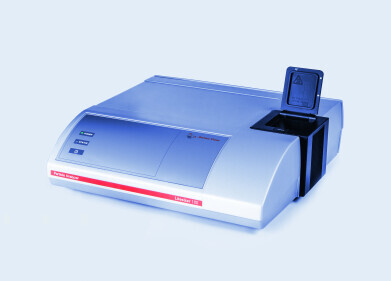Laboratory Products
Dogs Might Be Able to Sniff Out Seizures Before They Happen
Apr 12 2019
It's no secret that dogs have an exceptional sense of smell and now a new study claims that specially trained canines could be used to detect epileptic seizures before they occur. Published in In Scientific Reports, the findings suggest that the highly sophisticated canine nose could outperform modern medical equipment.
Already, dogs have been used to sniff out diabetes, Parkinson's disease and certain types of cancers. They do this by using blood, breath and sweat to detect the presence of miniscule molecules released by cancerous tumours or damaged internal organs. The study builds on this existing knowledge and claims it's possible to train dogs to pick up on seizure scents.
"Changes in human odour, as symptoms of specific diseases, have been noted since Hippocrates’ time," reads the introduction. "Only recently though has human body odour been proven to vary in relation with health disorders. For example, the composition of exhaled breath is different in patients with lung cancer, inflammatory lung or liver disease, hepatic or renal dysfunction or diabetes."
Training dogs to pick up 'seizure scents'
The study was led by Amélie Catala, a PhD student at the University of Rennes. She and the team collected the breath condensation and sweat of patients during both exercise and epileptic seizures. Five dogs from the Medical Mutts facility in Indianapolis were then enlisted to smell the fluids and trained to associate 'seizure scents' with a reward. Once trained the dogs were exposed to seven different cans, one containing seizure scents and the others filled with scents collected during exercise or day-to-day activities. Over the course of nine trials three of the five dogs achieved a 100% success rate.
Study revives interest in olfactory characteristics of seizures
While Catala admits there's still a lot of work to be done before laboratory trails can transition to real life scenarios, she is confident the study could be lifechanging for epilepsy sufferers. Not only would it empower epilepsy patients with the ability to drive, but it would also allow them to seek out help before a seizure occurs.
"In any case, we believe that these first results make an important contribution to the field of epileptic research and reopens the possibility that seizures may be anticipated by looking further at olfactory characteristics," reads the discussion.
Want to know more about the latest medical breakthroughs? 'Maximise productivity in pharmaceutical high-throughput experimentation (HTE) with automated powder dispensing' explores the importance of continuous developments and innovations in laboratory automation.
Digital Edition
Lab Asia 31.2 April 2024
April 2024
In This Edition Chromatography Articles - Approaches to troubleshooting an SPE method for the analysis of oligonucleotides (pt i) - High-precision liquid flow processes demand full fluidic c...
View all digital editions
Events
Apr 28 2024 Montreal, Quebec, Canada
May 05 2024 Seville, Spain
InformEx Zone at CPhl North America
May 07 2024 Pennsylvania, PA, USA
May 14 2024 Oklahoma City, OK, USA
May 15 2024 Birmingham, UK



.jpg)














